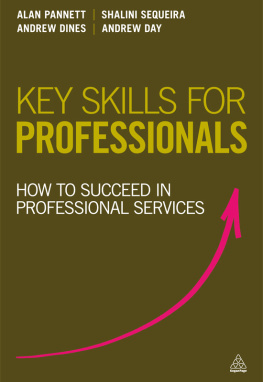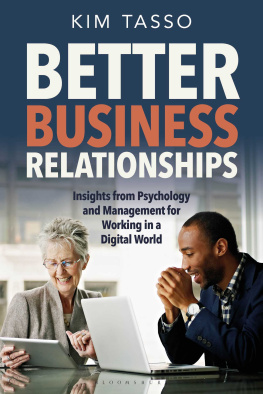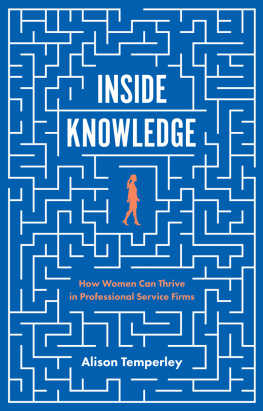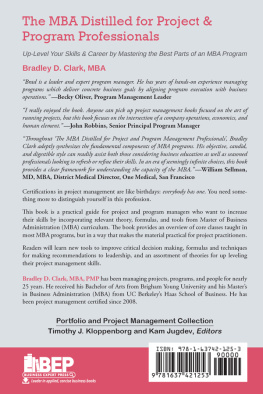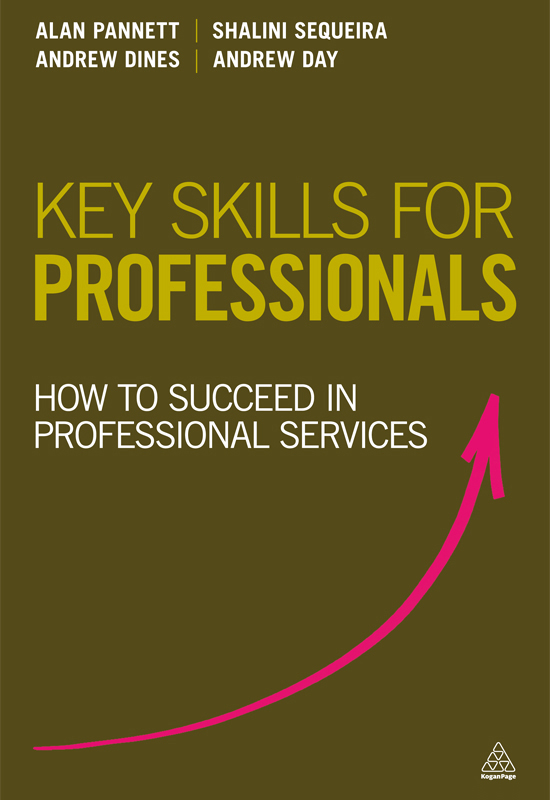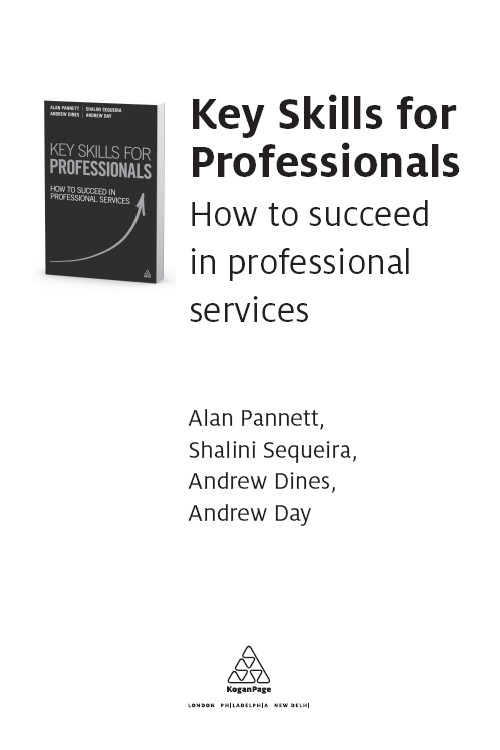Note on the Ebook Edition
For an optimal reading experience, please view large
tables and figures in landscape mode. |
This ebook published in 2013 by
Kogan Page Limited
120 Pentonville Road
London N1 9JN
UK
www.koganpage.com
Alan Pannett, Shalini Sequeira, Andrew Dines and Andrew Day 2013
E-ISBN 978 0 7494 6877 4
CONTENTS
Introduction:
acquiring the key skills of a professional
T he authors would like to thank our publisher Julia Swales for taking our idea forward to publication; Fiona Dempsey and Amanda Dackombe for their work editing the manuscript and producing the final copy. We are grateful to Rachel Berry, Claire Horney and Shirley Scott of fresh Professional Development who provided us with fantastic support by typing and formatting the final manuscript.
We would also like to extend our thanks to Dr Debra Davison for her insight into the key issues which guide the professional behaviour of GPs; Mr Gerry Crook, who provided examples of the many professional conduct issues which head teachers face and to Jenny Robertson whose overseeing of was invaluable.
Alan Pannett, Andrew Dines, Shalini Sequeira, Andrew Day
The purpose of this book
This book is designed to help you acquire, develop and practise the skills needed for a successful career in one of the professions. This Introduction is intended to get you thinking about a number of things:
What are the key skills of a professional?
How will you acquire and develop these skills?
How will you practise these skills and enhance your career?
How to use this book
The decision to read this book was your key decision. You recognize that there are skills that a professional needs to acquire, develop and use in their day-to-day professional lives and you wish to gain further insight and review your existing skills.
How you use this book is up to you. The authors consider that we can contribute our knowledge, expertise and experience to assist you in two significant ways:
to provide you with a theoretical foundation and framework on which to build your own ideas and thoughts, so that you may use this foundation to challenge assumptions that you may have made;
to provide you with practical assistance, so that you can develop and implement the skills discussed in this book.
Rightly or wrongly, we believe that we have learned from our experiences and we are wiser as a result. We would like to share our insights with you.
Ideally we ask that you read this book as you would any other, with an open mind and from start to finish: from this Introduction to the final words of . We believe that by doing so you will gain a full understanding and insight into the theory, practice and implementation of the skills discussed.
Alternatively, you may use this book as a reference source, to enable you to consider a specific issue or the exercise and implementation of a skill in a particular context, eg the giving of constructive feedback to an underperforming colleague.
You may also choose to use this book to assist you in benchmarking the skills that you have with the skills set out and discussed in this book. To help you in this process, you can take two online assessments, the first to test your written English and business-writing skills, the second to assess your financial interpretation skills. If you wish to take these assessments please go to www.freshpd.com and follow the links you will find there.
The key skills of a professional
All professionals need to have a basic understanding of how a professional services business is structured, why it is profitable, and the factors that impac t on profitability. In short, a clear understanding of what makes a professional services business tick and the levers of profitability.
Good communication skills are crucial for all professionals. These skills include communicating with clients, professionals and colleagues using effectiv e written, oral and presentation skills. Linked to oral communication is the skill of making an effective contribution in meetings: we will consider how you can do this. We will also look at networking skills and how to use your network of contacts to develop new business and manage client relationsh ips to gain more work.
Personal effectiveness is very important for all professionals; we all need to be a ware of the significance of personal organization and workload manage ment. A strong combination of effective communication skills, personal organi zation and technical expertise is necessary for us to be able to deliver high-quality professional services; it is also a good starting point to define what it is to be a professional.
The ability to negotiate effectively is a key aspect of professional life. Negotiating on behalf of clients in a range of different contexts, with a numb er of different parties and agencies is a significant part of what many profession als do. We will look at the component elements of effective negotiation.
Professionals can no longer operate effectively as one-man bands or sole practitioners. We will look at the skills associated with effective team work and the leadership skills essential to lead teams.
Managing performance is an important skill; whether it is your own performa nce or the performance of team members for whom you are responsible. We will look at both.
Understanding financial information is another very important skill, which enables you to make decisions based on a clear understanding and an acc urate interpretation of the financial information that is available.
Behaving professionally is fundamental to professional life. It is difficult to define exactly what this is it is much easier to identify when someone has failed to behave professionally. We will explore the fundamental impor tance of behaving professionally, and the risk management aspects and commerc ial imperatives that may impact on this.
Acquiring the skills
How can you acquire these professional skills?
Some skills are learned in the classroom. However, no amount of talk and chalk can fully prepare you for exercising the professional skills that you are learning.
You will learn new skills by undertaking professional work learning by doing: from the experience gained from your work and by exercising the skills that you have. It is not that long ago, that the essential learning experience was to get on with the job and learn by making mistakes. One would probably be told off and given something else to do, with little or no explanation of how to do it, only to repeat the learning cycle over again.
To develop your skills effectively you need coaching, guidance and support from those who have the relevant expertise. You can also benefit from their constructive feedback. To build your skills to a higher level of competence you need constructive feedback on your current level of performance. This is perhaps the most important aspect of how we all develop in our professional lives, since constructive feedback allows us to reflect on what we have achieved and how to further develop our skills.
Taking responsibility for developing your skills and managing your career
We all need to take responsibility for our own development and for manag ing our careers. It may not seem easy at the start of a career, when the objecti ve is to qualify. From there, peoples objectives may differ. Some will want to go for partnership whilst others may want a long-term career but with a differ ent worklife balance and may look for a role that will enable them to have this. Others may use their professional qualification to enable them to move into commerce, industry or establish their own business.

